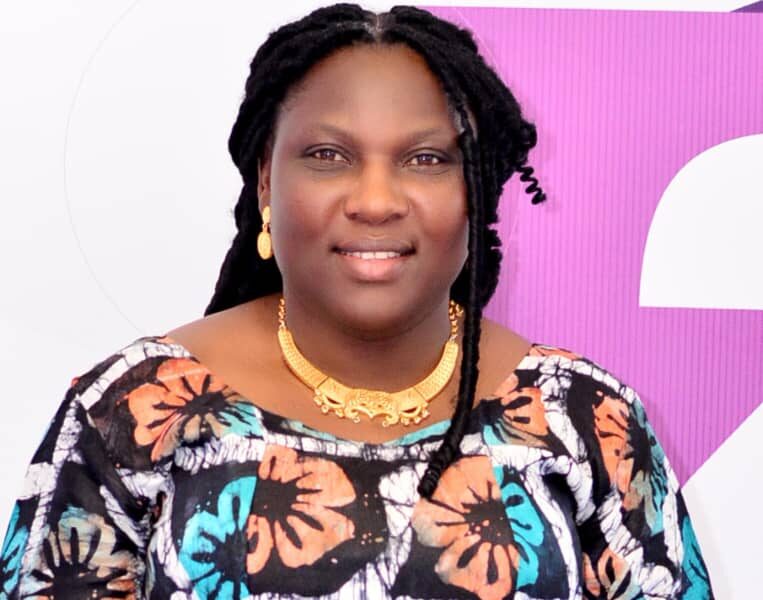Since assuming office in 2024, the Honorable Commissioner for Women Affairs in Kwara State, Chief Mrs. Afolashade Opeyemi-Uluwakemi, has led transformative policies benefiting women, children, and vulnerable groups. Some of her achievements include securing six-month maternity leave, advancing gender-based violence prevention, promoting women’s political inclusion, and institutionalizing community outreach. Her leadership is shaping a more inclusive and equitable future across the state. She shares excerpts below
Q: What have been your key achievements since 2024 when you assumed office as Commissioner for Women Affairs?
A: Since taking office, my ministry has focused on supporting women, children, widows, and people with disabilities. One of our landmark achievements is advocating for a six-month maternity leave policy, which the governor approved. This policy encourages exclusive breastfeeding, helping to reduce child malnutrition and illness.
We’ve also deepened grassroots engagement by working closely with traditional and religious leaders to encourage women’s participation in public life. Our outreach has helped more women step forward for leadership roles.
On the issue of sexual and gender-based violence (SGBV), we’ve launched several sensitization campaigns. As a result, awareness is increasing, and incidents are gradually reducing. We’ve worked closely with stakeholders—from community leaders to law enforcement—and the results are visible.
Q: How does your ministry ensure that these initiatives are sustained beyond your tenure?
A: We’ve institutionalized sensitization efforts. Regardless of formal approvals or external programs, we go into communities regularly to counsel and educate people. It’s now part of our system in Kwara.
We work hand-in-hand with other ministries—Health, Education, Justice—and even traditional rulers now educate their communities about issues like SGBV. In churches and mosques, awareness messages are shared after services. That’s the level of integration we’ve achieved.
Q: Is the ministry documenting these efforts to ensure continuity?
A: Yes, that’s part of our strategic plan. We’ve held meetings with directors to map out documentation strategies, especially following learnings from programs like ROLAC (Rule of Law and Anti-Corruption). We’re determined to turn our work into reference materials that can guide future administrations.
Q: What is the current situation regarding sexual and gender-based violence in Kwara State? Can you share some data?
A: Since I resumed in the Ministry of Women Affairs in June last year, we’ve documented 225 cases of SGBV. Some of these cases are in court, while others are still under investigation. We’ve resisted political or social interference in these cases. Our 21-member GBV committee—chaired by the First Lady—is committed to justice. In fact, we’ve taken one case to the Court of Appeal after being dissatisfied with the judgment.
We’ve also faced technical challenges uploading our data to the federal dashboard, which may give the impression that Kwara’s numbers are high. But I assure you, that’s not accurate. Our documentation is thorough at the state level.
Q: The First Lady of Kwara State also plays a prominent role nationally. How has her influence benefited grassroots women who are under your care?
A: Her Excellency is a role model and a huge asset to the state. As Chairperson of the Governors’ Spouses Forum, she leads by example. Many of the initiatives we implement in Kwara—especially around GBV—often become models for other states. Her passion and leadership have amplified our impact at the grassroots.
Q: In some states, there’s tension between First Ladies and Commissioners for Women Affairs. What is your relationship with the First Lady like?
A: I consider myself very fortunate. The synergy between us is seamless. She respects the ministry’s autonomy and always involves me in her initiatives. For example, ahead of International Women’s Day, she asked me about our plans and offered insightful suggestions. She even personally informs me about relevant international opportunities. It’s a very collaborative relationship.
As women, we must know our purpose and be focused. Positions should not be occupied for prestige, but for service. We must also support each other and prove wrong the stereotype that women are enemies of themselves. By uplifting one another, we dismantle barriers and expand opportunities.
We must also encourage our girls—especially those who face early challenges like teenage pregnancy—not to give up. That mistake is not the end of life.
Q: Does Kwara State support the advocacy for safe termination of pregnancy which is a prevalent health issue?
A: That’s a very sensitive subject and requires careful policy discussion. We consider national guidelines, cultural context, and stakeholder input before making definitive policy decisions.
Q: On that note, how would you describe the current status of women in Kwara State in terms of health, political positions and economic empowerment?
A: I must above all, appreciate the kind of leadership we have in Kwara. His Excellency, Governor AbdulRahman AbdulRazaq, has been an incredible blessing to the state. Since he assumed office, there’s been a remarkable shift in the empowerment of women.
He doesn’t just talk about inclusion—he practices it. Take his cabinet, for instance: we now have 22 commissioners, with women occupying 11 of those seats. That’s 50% representation, surpassing the 35% affirmative action benchmark. And it’s not a temporary arrangement—the gender inclusion policy has been passed into law, ensuring sustainability.
Beyond that, women are holding strategic roles in the state. The head of the Kwara State Internal Revenue Service is a woman. The vice-chairpersons of all local government councils are also women. So, truly, women in Kwara are thriving under this administration.
I would advise women should stand up, be courageous, and know your rights. You don’t need to hold an official position to make a difference. If you see something wrong—report it. Sensitize your community. Empower your daughters and support your fellow women. Together, we can build a stronger, more inclusive society.


